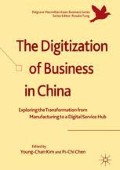Abstract
The use of websites to promote hospitality services have been a major platform in hotel branding since the 1980s. Yet, comparatively fewer research initiatives have been undertaken to explore the language of evaluation on luxury hotel homepages. This chapter explores the ways in which Hong Kong’s luxury hotels evaluate their products and services, and construct interpersonal relationships with readers in the introductory texts of their homepages. By drawing upon the framework of their Appraisal Theory within a Systemic Functional Linguistics approach, the analysis shows that the hotel homepages tend to present one-way communication from the hotels’ perspective rather than a two-way exchange, which engages readers with the online luxury experience. Positive appreciation dominates when compared to the other types of attitudes for evaluating the quality of the products and services. Graduation is heavily employed by means of superlatives and maximization to amplify the superiority of the hotels; however, it is without a benchmark. In terms of engagement, hotel homepages are predominantly monoglossic with only a few instances of heteroglossic utterances, possibly serving to pre-empt subsequent challenges from readers. The study therefore seeks to propose that the employment of more resources of affect, judgment and engagement could enhance online experience, and hence, boost the promotional effectiveness of hotels.
Access this chapter
Tax calculation will be finalised at checkout
Purchases are for personal use only
References
Bagdan, P. (2013). Guest service in the hospitality industry. Hoboken: John Wiley & Sons.
Bernstein, L. (1999). Luxury and the hotel brand: Art, science, or fiction? Cornell Hotel and Restaurant Administration Quarterly, 40, 47–53.
Bhatia, V. K. (2004). Worlds of written discourse. London/New York: Continuum.
Blue, G., & Harun, M. (2003). Hospitality language as a professional skill. English for Specific Purposes, 22, 73–91.
Cheng, W. (2004). // → did you TOOK // ↗ from the miniBAR //: What is the practical relevance of a corpus-driven language study to practitioners in Hong Kong’s hotel industry? In U. Connor & T. A. Upton (Eds.), Discourse in the professions (pp. 141–166). Amsterdam: John Benjamins.
Cheng, W., & Suen, A. (2014). Multimodal analysis of hotel homepages: A comparison of hotel websites across different star categories. The Asian ESP Journal, 10(Special Issue), 5–33.
Chevalier, M., & Mazzalovo, G. (2008). Luxury brand management a world of privilege. Singapore: John Wiley & Sons Asia.
Cook, G. (2001). The discourse of advertising. London: Routledge.
Durant, A., & Lambrou, M. (2009). Language and media: A resource book for students. London: Routledge.
FitzGerald, H. (2002). Cross-cultural communication for the tourism and hospitality industry. Frenchs Forest: Hospitality Press.
Flowerdew, J., Li, D., & Tran, S. (2002). Discriminatory news discourse: Some Hong Kong data. Discourse & Society, 13, 319–345.
Hood, S. (2010). Appraising research: Evaluation in academic writing. London: Palgrave.
Kalashnikova, O. (2010, June 25). Hotels face compulsory certification. The St. Petersburg Times, 1586(47). Retrieved February 25, 2014, from http://www.sptimes.ru/index.php?action_id=2&story_id=31783
Kimpakorn, N., & Tocquer, G. (2009). Employees’ committee to brands in the service sector: Luxury hotel chains in Thailand. Journal of Brand Management, 16, 532–544.
Kotler, P., Bowen, J., & Makens, J. (2010). Marketing for hospitality and tourism. Boston: Pearson.
Law, R., & Yeung, T. A. (2007, February). How useful is your website? An in-depth look at Hong Kong hotel websites. Research Horizons SHTM Magazine. Official Magazine of the School of Hotel and Tourism Management The Hong Kong Polytechnic University, vol. 7, pp. 1–4.
Martin, J. R. (2000). Beyond exchange: APPRAISAL systems in English. In S. Hunston & G. Thompson (Eds.), Evaluation in text: Authorial stance and the construction of discourse. Oxford: Oxford University Press.
Martin, A., & Davies, S. (2006). An evaluation of the language skills in Scottish hotels. Journal of Hospitality, Leisure, Sport and Tourism Education, 5(1), 4–15.
Martin, J., & White, P. (2005). The language of evaluation: Appraisal in English. Basingstoke/New York: Palgrave.
Newsom, D., & Haynes, J. (2008). Public relations writing: Form & styles (8th ed.). Belmont: Thomson Wadworth.
Okonkwo, U. (2010). Luxury online: Styles, systems, strategies. Basingstoke: Palgrave.
Pollach, I. (2005). Corporate self-presentation on the WWW. Strategies for enhancing usability, credibility and utility. Corporate Communications: An International Journal, 10(4), 285–301.
Randall, G. (2000). Branding (2nd ed.). London: Kogan Page.
Schrank, J. (1976). The Language of advertising claims. In D. Dieterich (Ed.), Teaching about doublespeak. Illinois: NCTE.
Smith, R. (2012). Becoming a public relations writer: A writing workbook for emerging and established media (4th ed.). New York: Routledge.
Suen, A. (2009). Self-representation of five star hotels: A digital genre analysis of hotel websites. In V. K. Bhatia, W. Cheng, B. Du-Babcock, & J. Lung (Eds.), Language for professional communication: Research, practice & training. Hong Kong: City University of Hong Kong, Asia-Pacific LSP and Professional Communication Association and The Hong Kong Polytechnic University.
Thomson, K., de Chernatony, L., Arganbright, L., & Khan, S. (1999). The buy-in benchmark: How staff understanding and commitment impact brand and business performance. Journal of Marketing Management, 15(8), 819–835.
Tian, Y. (2013). Engagement in online hotel reviews: A comparative study. Discourse, Context & Media, 2(4), 184–191.
van der Geest, T. (2001). Website design is communication design. Amsterdam: John Benjamins Publishing Company.
van der Wagen, L. (1997). Communication in tourism and hospitality. Elsternwick: Hospitality Press.
Wernick, A. (1991). Promotional culture: Advertising, ideology and symbolic expression. London: Sage.
Zaltman, G., Olson, J., & Forr, H. (2015). Toward a new marketing. Science for hospitality managers, 56(4), 337–344.
Author information
Authors and Affiliations
Corresponding author
Editor information
Editors and Affiliations
Rights and permissions
Copyright information
© 2018 The Author(s)
About this chapter
Cite this chapter
Suen, A. (2018). The Language of Luxury Hotel Websites in China. In: Kim, YC., Chen, PC. (eds) The Digitization of Business in China. Palgrave Macmillan Asian Business Series. Palgrave Macmillan, Cham. https://doi.org/10.1007/978-3-319-79048-0_4
Download citation
DOI: https://doi.org/10.1007/978-3-319-79048-0_4
Published:
Publisher Name: Palgrave Macmillan, Cham
Print ISBN: 978-3-319-79047-3
Online ISBN: 978-3-319-79048-0
eBook Packages: Business and ManagementBusiness and Management (R0)

